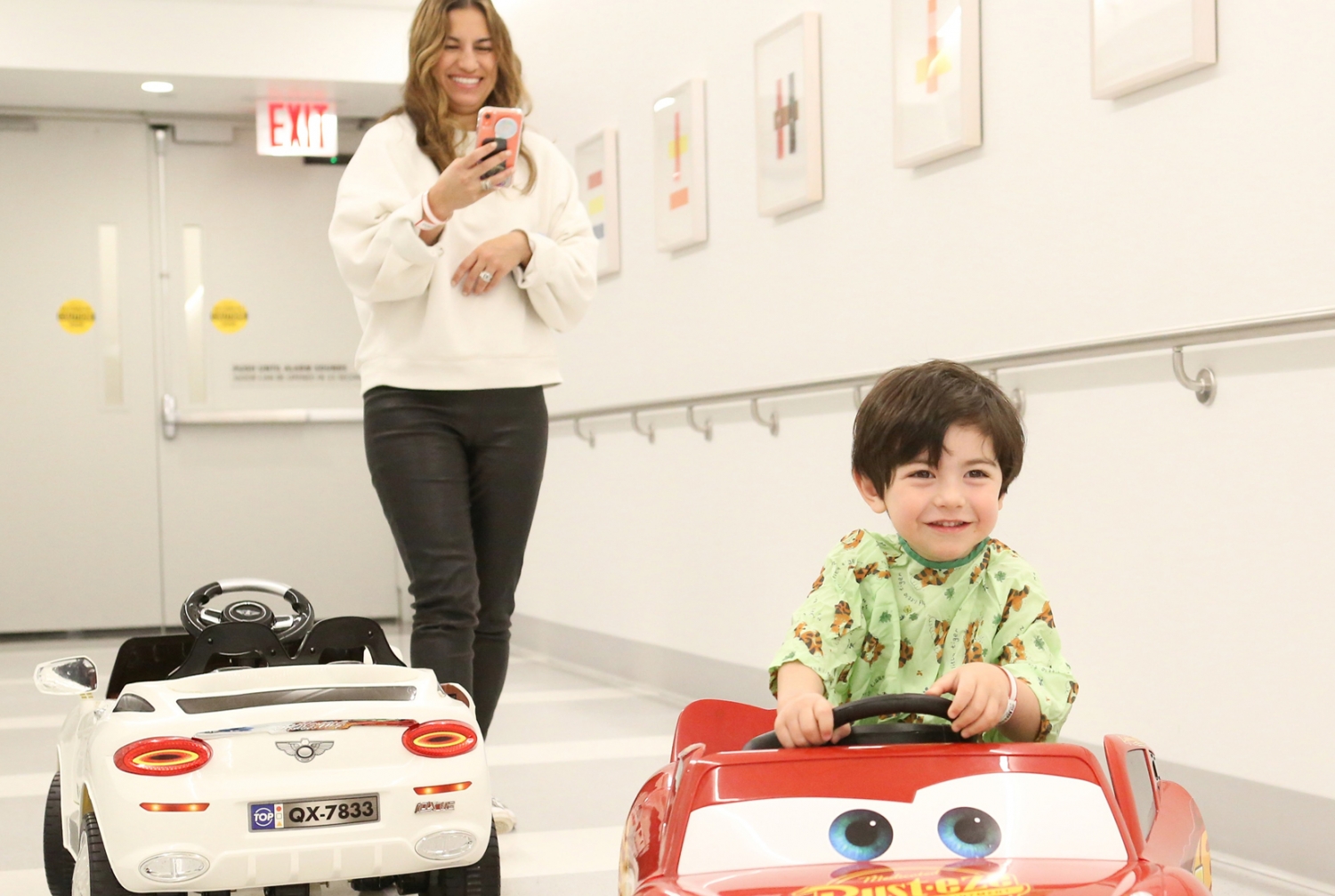Undergoing surgery can be stressful for anyone, especially small children. A Weill Cornell Medicine pediatric otolaryngologist has been making the experience easier for patients, thanks to a pair of miniature cars that kids can play with as they await surgery—and can even drive to the operating room themselves. “It was a total game changer,” says Elena Silverman, whose four-year-old son, Jaime (both seen above), came to the NewYork-Presbyterian David H. Koch Center in March for procedures to replace fluid-draining tubes in his ears and to reduce the size of his tonsils and adenoids. “Once he spotted those cars, it was like he was in a toy store rather than a hospital. It was a wonderful distraction.”
In addition to taking kids’ minds off of surgery, the program is designed to ease their anxiety and provide them with a sense of control of the hospital experience. The brainchild of Dr. Vikash Modi, chief of pediatric otolaryngology, what started with one car donated by the family of a grateful patient proved so popular that Dr. Modi donated another. Now, for kids who are interested, NewYork-Presbyterian/Weill Cornell Medical Center child-life specialists offer the choice between a red racer and a white Bentley, the latter of which can be remotely controlled by staff. That way, Dr. Modi says, children too young to operate it can still feel like they’re driving— and asserting themselves in a situation that can feel overwhelming. “Little things like this go a long way,” observes Dr. Modi, associate professor of otolaryngology in pediatrics and of otolaryngology–head and neck surgery at Weill Cornell Medicine and a pediatric otolaryngologist at NewYork-Presbyterian/Weill Cornell Medical Center. “Parents just rave about it, and the kids love it. Afterward, they don’t remember the surgery. All they remember is getting in that car and driving around.”
This story first appeared in Weill Cornell Medicine, Spring 2019

